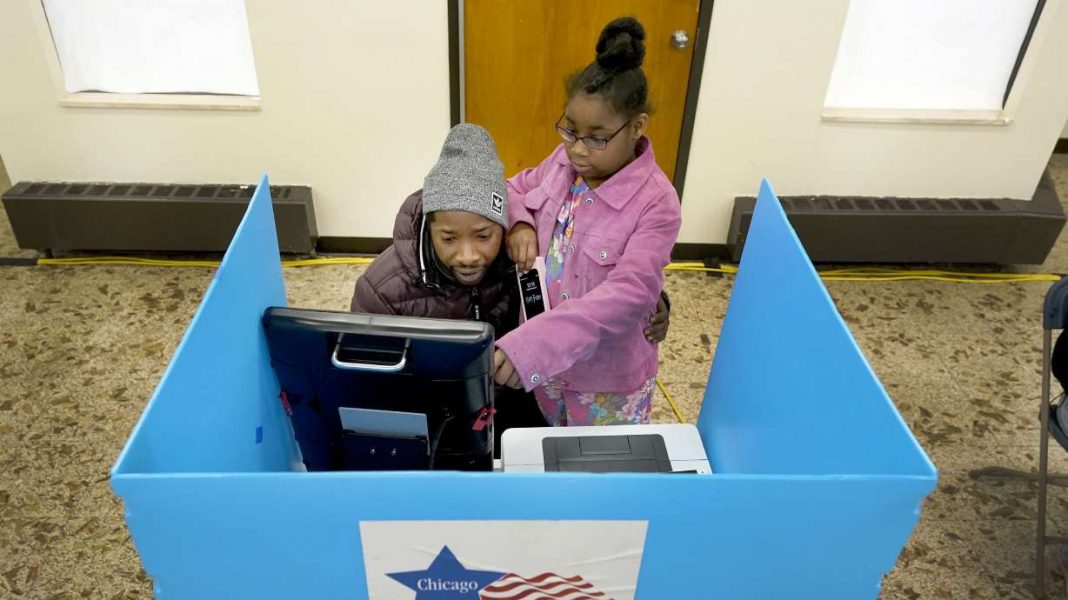From the heart of SALT LAKE CITY — As the presidential election year kicked off, the spotlight was firmly on Iowa and New Hampshire. The question on everyone’s lips was which Republican presidential candidate would secure the first electoral caucus victories of 2024 in these states.
A recent study by WalletHub delved into the composition of electorates, examining how closely they mirror the demographics of the population they represent. The study also sought to identify which state is the most representative of the United States as a whole.
States that closely mirror the overall representation:
- Illinois
- Florida
- Ohio
- Virginia
- Pennsylvania
States that deviate significantly from the overall representation:
- Utah
- Mississippi
- Alabama
- Wyoming
- Vermont
According to WalletHub analyst Cassandra Happe, “Illinois, Florida, and Ohio are far more representative of the electorate than Iowa and New Hampshire, which rank 19th and 36th respectively out of the 50 states in terms of how well their demographics align with the U.S. population overall.” She suggests that the order of states in the presidential primaries should be based on representation rather than tradition or political favoritism.
What differentiates the most and least representative states?
Given the immense diversity of the United States, no single state can perfectly mirror the nation in all aspects. However, Illinois came closest with a “94% similarity when all demographics are averaged.”
The survey found that Illinois closely mirrors the nation in terms of gender, age, the proportion of residents born in the U.S., and the unemployment rate, with over 99% similarity in each of these metrics.
On the other hand, Utah was found to be the least representative state, ranking last in the following categories:
- Religious composition of adults;
- Wealth gap;
- Age characteristics;
However, it’s important to note that every state contributes uniquely to the nation’s tapestry. The concept of being the “worst” or “best” representative is largely subjective and depends on the metrics used for comparison.
The significance of Iowa and New Hampshire in the presidential primaries
For years, Iowa and New Hampshire have been the first ports of call for presidential candidates on their campaign trail.
“Since 1976, both parties have held their first presidential nominating contests in Iowa, and the Iowa state legislature passed a law stating that its caucuses need to be held at least eight days before any other nominating contest,” according to the National Constitution Center. “While Iowa holds the nation’s first presidential nominating contest, New Hampshire holds the nation’s first primary election.”
Despite their pivotal role in the presidential nomination process, neither state accurately reflects the nation’s ethnic and racial diversity. Furthermore, New Hampshire has an older median age compared to the national average, as per the U.S. Embassy Japan.
In the WalletHub survey, Iowa and New Hampshire ranked 19th and 36th respectively in the electorate representation index. These rankings have led critics to question the disproportionate influence these states have in every presidential election.
When asked if states that more closely mirror the national electorate should have their primaries earlier in the process, Alison Dagnes, professor and chair of the political science department at Shippensburg University, told WalletHub, ”The national electorate is diverse, but some states have electorates that are far more homogenous.
“Also, the Democratic Party tends to be more diverse than the GOP, which means that the two parties are speaking to different constituencies. This is why the Democrats changed their primary schedule to make South Carolina, which is a more diverse state, hold their first-in-the-nation primary. The parties can change the election order to best suit their needs since the parties are the ones who hold the primary elections in the first place,” Dagnes added.




Disagree – Every state contributes to the diverse fabric of America in their own way.
Disagree. Every state brings something unique to the table, reflecting different aspects of American culture and identity.
Disagree – Each state uniquely contributes to the rich tapestry of American culture and identity, even if in different ways.